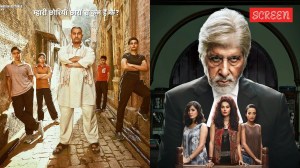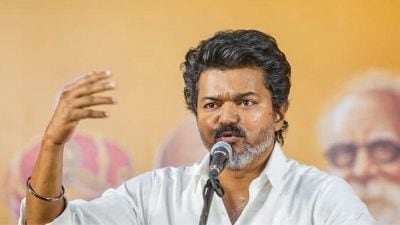Stay updated with the latest - Click here to follow us on Instagram
Ayodhya dispute case to come up in SC on October 29
On September 27, another SC bench headed by then CJI Dipak Misra had by a 2-1 decision rejected demands to send the matter to a larger bench. The plea was raised by some of the appellants who also wanted the court to reconsider its 1994 ruling.
 A bench will on Monday hear appeals challenging the September 30, 2010 judgment of the Allahabad High Court in the Ram Janmabhoomi-Babri Masjid dispute. (Representational image)
A bench will on Monday hear appeals challenging the September 30, 2010 judgment of the Allahabad High Court in the Ram Janmabhoomi-Babri Masjid dispute. (Representational image)
A bench headed by Chief Justice of India Ranjan Gogoi and comprising Justices S K Kaul and K M Joseph will on Monday hear appeals challenging the September 30, 2010 judgment of the Allahabad High Court in the Ram Janmabhoomi-Babri Masjid dispute under “direction matters”.
On September 27, another SC bench headed by then CJI Dipak Misra had by a 2-1 decision rejected demands to send the matter to a larger bench. The plea was raised by some of the appellants who also wanted the court to reconsider its 1994 ruling in the M Ismail Faruqui Etc vs Union Of India And Others case in which a Constitution Bench had observed that “a mosque is not an essential part of the practice of the religion of Islam and namaz (prayer) by Muslims can be offered anywhere, even in open”.
The petitioners had claimed that the earlier decisions in the Ayodhya case were influenced by this statement in the Ismail Faruqui verdict which came on a plea challenging the Constitutional validity of the Acquisition of Certain Area at Ayodhya Act-1993, under which 67.703 acres were acquired in Ram Janmabhoomi-Babri Masjid complex.
Turning down the plea, CJI Misra and Justice Ashok Bhushan in their majority verdict said that “we again make it clear that questionable observations made in Ismail Faruqui’s case were made in context of land acquisition” and that “those observations were neither relevant for deciding the suits nor relevant for deciding these appeals”. The judges said that “the observation need not be read broadly to hold that a mosque can never be an essential part of the practice of the religion of Islam”.
The judges further said that “the statement ‘a mosque is not essential part of the practice of religion’ is a statement which has been made by the Constitution Bench in specific context and reference. The context for making the above observation was claim of immunity of a mosque from acquisition. Whether every mosque is the essential part of the practice of religion of Islam, acquisition of which ipso facto may violate the rights under Articles 25 and 26, was the question which had cropped up for consideration before the Constitution Bench. Thus, the statement that a mosque is not an essential part of the practice of religion of Islam is in context of issue as to whether the mosque, which was acquired by Act, 1993 had immunity from acquisition”.
However, Justice S Abdul Nazeer gave a dissenting view and said the conclusion in the Faruqui order that “a mosque is not an essential part of the practice of the religion of Islam and namaz (prayer) by Muslims can be offered anywhere, even in open” has been “arrived at without undertaking comprehensive examination”.







